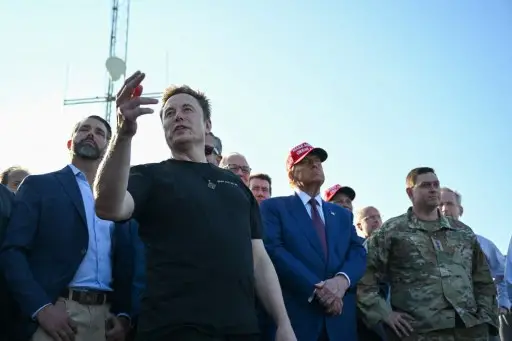In an unexpected turn of events, billionaire entrepreneur Elon Musk announced his involvement in a groundbreaking initiative aimed at overhauling the structure of the U.S. federal government. Teaming up with businessman and political commentator Vivek Ramaswamy, Musk revealed plans for a strategic advisory body called the Department of Government Efficiency (DOGE).
The initiative, unveiled through a co-authored piece in The Wall Street Journal, signals a dramatic shift in the approach to federal spending and administrative regulation, with Musk and Ramaswamy positioning themselves as reformers with the backing of President-elect Donald Trump.
The Mission: Slimming Down Federal Bureaucracy
DOGE’s primary aim, as outlined by Musk and Ramaswamy, is to reduce government inefficiency by targeting overregulation and excessive spending. Their ambitious goals include cutting $500 billion in expenditures and significantly downsizing the federal workforce. Musk, known for his disruptive innovations in technology, stated that his entrepreneurial mindset would guide the initiative.
“We are here to correct decades of unchecked executive overreach,” the statement declared. By leveraging Trump’s executive powers and the conservative lean of the Supreme Court, the duo plans to nullify regulations they deem unnecessary or burdensome.
A Radical Approach with High Stakes
Unlike traditional government departments, DOGE will function as an advisory entity, operating outside formal federal frameworks. Musk and Ramaswamy emphasized that they would serve as private volunteers, free from the constraints of official government employment.
“Our goal is to be obsolete by July 4, 2026,” they said, indicating an end date for the project aligned with America’s 250th Independence Day anniversary.
This approach, however, has raised significant concerns. Critics argue that the initiative could destabilize essential programs, such as public broadcasting and international aid, while creating room for potential conflicts of interest given Musk’s extensive business dealings with both domestic and foreign governments.
Conflict of Interest and Political Risks
As CEO of Tesla, SpaceX, and X (formerly Twitter), Musk wields influence across industries that intersect with government policy. His close alliance with Trump, which reportedly includes $100 million in campaign contributions, has amplified questions about transparency and fairness. Some experts warn that DOGE’s agenda might favor Musk’s private interests over public welfare.
Political analysts also highlight potential pushback, even within Trump’s Republican base, as ambitious cuts to popular programs could alienate key constituencies. Legal battles are expected to challenge DOGE’s actions, testing the limits of executive authority.
The Road Ahead
Despite the controversy, Musk and Ramaswamy appear confident. They cite recent Supreme Court decisions and Trump’s electoral mandate as key factors in their favor. With a focus on efficiency and cost reduction, they aim to leave a lasting impact on the federal government’s structure.
The first major test of their partnership with Trump will be whether they can navigate the political and legal minefield of Washington without fracturing their alliance. Only time will reveal whether DOGE becomes a symbol of government reform or a flashpoint for further division.
This radical endeavor marks a new chapter in the intersection of business and governance, with Musk and Ramaswamy redefining what it means to be outsiders influencing the political arena.






